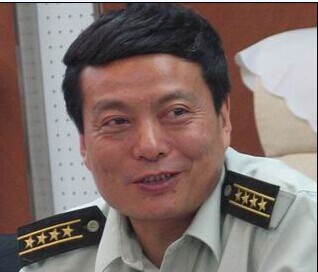JIANG QIANLIN: National security is a holistic issue

JIANG QIANLIN
Ever since the Communist Party of China (CPC) proposed the establishment of the Central National Security Commission (CNSC) at the 18th Central Committee of the CPC, the new Commission has been at the center of discussions at home and abroad. As the General Secretary of the Commission, Xi Jinping put forward the “concept of overall national security” and “a nationally secure path with Chinese characteristics” at the First Meeting of the CNSC.
The current international situation, on the whole, is stable, but real potential threats to peace remain. The radical changes of the world situation have added clouds of uncertainty and instability to the atmosphere of Chinese national security. The journey of rejuvenating our nation is not easy. The stronger we are, the higher the risks and pressure we confront. The hostile factions tend to manipulate new media as channels for attack. In such a context, national security is a critical issue that we should give weight on, which is why the CNSC was established.
National security for China at the current scenario is a holistic issue that is not only limited to the traditional military security. It also covers political, economic, cultural and social security that all matters people’s security.
Political security, in a general sense, refers to the security of a nation’s political system and ideology, which correlate with the stability and legitimacy of the State, the government and political beliefs.
In my point of view, political security has much to do with common prosperity. Since 1980s, the living standard in China has consistently improved. However, wide wealth gaps remain between urban and rural areas as well as between the eastern and western region, undoubtedly affecting political security.
Culture is also crucial for national security. At the critical juncture of institutional, social and ideological transformation, individual thoughts are unprecedentedly active and diverse. China urgently needs to improve its cultural “soft power,” by promoting its own values demonstrating Chinese elements, ethical traditions as well as the new trends along with timing.
In addition, public awareness is also important for safeguarding national security. National identity is the basis for public awareness, which shall be formed and consolidated through sharing the common sentimental and practical context of institution, philosophy and political system.
Currently, China, with its rising strength, is actually transforming the international geopolitical order and reshaping world politics. Many expect China’s rise to follow the path of Western countries, which have throughout history used their growing might to achieve hegemony. Though China declares its peaceful development, the theory of “China threat” will persist as long as China is on its way to progress.
From the start, China has expressed its determination to constantly pursue peaceful development. The idea put forward by President Xi —“place both self-security and common security as priorities and build a community of common destiny,” indicating the aspiration of all human beings, is in line with the common interest of all countries.
This idea will no doubt win the recognition of other countries and regions, guiding the outside world to view China’s peaceful development in an objective way. However, it should be admitted that the misgivings about China’s arise not only from theoretical and conceptual divergences but also from the conflicts between rules and interests of different parties and, most fundamentally, the contradiction between two types of social systems and political ideologies.
It should be noted, however, while following the principle of peaceful development, we should guard the bottom-line untouched. The “bottom-line” is our core interest—any country may not expect that China will trade for its core interests and suffer the damage of its sovereignty, security and development.
Jiang Qianlin is the President of Nanjing Political Institute of the People’s Liberation Army.
The Chinese version appeared in Chinese Social Sciences Today, No. 592, May 7, 2014.
Edited and translated by Bai Le
The Chinese link:
